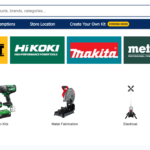In the current financial landscape in the world, regulatory compliance has become a pillar of sustainable business operations. As the number of financial crimes such as money laundering and terrorist financing continues to increase, regulators across the globe insist that organizations implement more stringent Anti-Money Laundering (AML) policies. This is where AML software is important in the process.
AML solutions automate the process of detection, monitoring and reporting, allowing businesses to remain compliant, reduce risks and protect their reputation. Banks, fintech firms and even non-financial industries are turning to the use of reputable AML solution providers.
What Is AML Software?
AML software is a dedicated technology that helps organizations to identify suspicious financial transactions, meet regulatory demands, and avoid criminal exploitation of financial systems. It usually interacts with the current compliance programs and offers the following features:
- Know Your Customer (KYC) and Customer due diligence (CDD)
- Sanctions and watchlist screening
- PEP screening
- Pattern recognition and transaction monitoring
- Automated suspicious activity reporting
The combination of these tools helps AML solutions keep businesses proactive in the fight against money laundering and other associated risks.
Why AML Software is Needed
- Compliance programs are required to be in place.
- Compliance programs must be effective.
Compliance programs are the foundation of any organization defense against financial crime. Manual processes are no longer adequate on their own, however, as transaction volumes and complex regulatory demands are on the rise.
This is how AML software can enhance compliance programs:
1. Automation of Regulatory Requirements
Manual compliance checks are time consuming and error prone. AML solutions automate these processes, minimizing human error and guaranteeing regulatory compliance is achieved in an efficient manner.
2. Real-Time Risk Detection
Financial crime is usually real time. The use of AML software by banks and financial institutions enables them to monitor transactions on a continuous basis and flag unusual transactions immediately.
3. Enhanced Data Accuracy
An effective compliance program requires quality customer and transaction data. AML solution providers provide updated databases of sanctions, PEPs and adverse media, so that organizations operate with reliable information.
4. Scalability to Global Operations
In the case of multinational businesses, AML solutions offer scalable compliance programs that can be flexible to various jurisdictions and regulatory frameworks.
Banking and Financial Institutions AML Software
The financial sector has the greatest compliance burden because of the high risk of money laundering in the financial sector. AML software in banks allows the institutions to:
- Carry out intensive KYC and CDD during customer onboarding.
- Scan millions of transactions each day to detect suspicious patterns.
- Integrate regulatory reporting systems to report suspicious activity reports (SARs) in a timely manner.
- Minimise the chances of hefty fines and reputational damage due to non-compliance.
As regulators are getting more stringent, banks need to trust in sophisticated AML solutions to stay in line with the changing global AML requirements.
AML Beyond Banking: Increasing Use Cases
Though the most widespread, AML software banks use is not the only industry to embrace these tools:
- Fintech companies apply AML solutions in order to process a large number of transactions safely.
- Insurance companies use AML solutions to identify fraud in insurance claims and premiums.
- Real estate companies use AML screening to screen high-risk buyers and sellers.
- AML software is utilized by cryptocurrency exchanges to make sure they are compliant with digital asset regulations.
This transition indicates that AML solutions are no longer a requirement of banks but also of various high-risk industries.
Selecting the AML Solution Provider
Not every AML software is made equal. Choosing the appropriate AML solution provider is very crucial to the success of a compliance program. The following are some of the considerations:
1. Regulatory Coverage
Make sure the AML solution is applicable to all jurisdictions in which your business is present. Various regions will have different compliance requirements.
2. High Technology Integration
Seek providers that use artificial intelligence, machine learning, and data analytics to enhance the accuracy of detection and minimize false positives.
3. Scalability and Flexibility
The AML solution must scale with your business and change with new regulations without significant interruptions.
4. Easy to Integrate
Select AML systems that are easily integrated with your current systems like core banking systems, payment processors, or customer onboarding systems.
5. Customer Service and Training
Good customer support will mean that your compliance team can address issues quickly, and training will help to make the solution as effective as possible.
The Future of AML Solutions in Compliance Programs
Compliance programs will continue to evolve as financial crime does. The future of AML will be based on AI, blockchain, and predictive analytics to detect risks before they become a reality.
In addition, regulators will likely insist on greater uniformity in AML frameworks across jurisdictions, and as such, businesses will need to implement AML software that can keep up with global convergence. This will reduce the number of manual processes that compliance teams have to do and instead depend on technology-based insights.
Conclusion
The contribution of AML software to the enhancement of compliance programs cannot be overestimated. Banks, fintechs, and other organizations in different industries rely on effective AML solutions to identify risks, comply with regulations, and safeguard their reputation.
Selecting the appropriate AML solution provider, companies can turn compliance into a competitive edge rather than a regulatory burden, and provide long-term resiliency in an ever-more complex financial environment.
Also Read: https://timelymagazine.co.uk/does-wikipedia-let-me-get-more-visibility/








